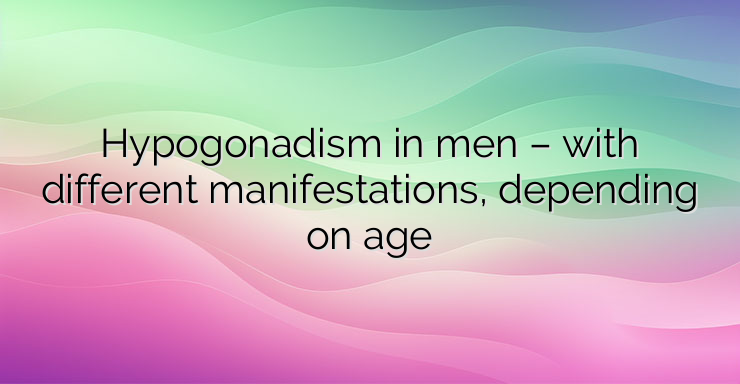Hypogonadism in men is a condition characterized by inadequate testosterone synthesis, a hormone crucial for the development of secondary sexual characteristics during puberty in boys, and for sperm production. This condition can result from disorders affecting the hypothalamus, pituitary gland, or testicles, which suppress hormonal secretion and testosterone production.
Causes of Hypogonadism
Hypogonadism can be categorized into primary, secondary, and tertiary types based on the level of damage:
- Primary Hypogonadism: Caused by testicular issues such as Klinefelter’s syndrome, undescended testicles, mumps, or testicular injury.
- Secondary Hypogonadism: Resulting from pituitary gland disorders, inflammatory diseases affecting the pituitary gland, HIV/AIDS, obesity, or certain medications.
- Tertiary Hypogonadism: Associated with hypothalamic disorders.
Symptoms
The symptoms of hypogonadism vary depending on when the condition occurs. In infants, it may lead to impaired growth and underdeveloped genitalia. In adolescents, it can cause delayed puberty, insufficient muscle mass, underdeveloped genitals, sparse body hair, and gynecomastia (enlarged breast tissue in males). In older men, symptoms may include decreased libido, erectile dysfunction, muscle weakness, loss of body hair, and mood disorders.
Diagnosis
Diagnosing male hypogonadism involves identifying clinical signs of reduced testicular hormone secretion and low levels of total testosterone in the blood. Men with metabolic syndrome, obesity, erectile dysfunction, or reduced libido are also candidates for evaluation.
Treatment
Treatment typically involves hormone replacement therapy. The method of administration varies based on age and duration of testosterone deficiency and may include regular injections, hormone-containing patches, or gels. Treatment aims to maintain secondary sexual characteristics, improve energy, strength, mood, and overall well-being, and prevent bone


Leave a Reply